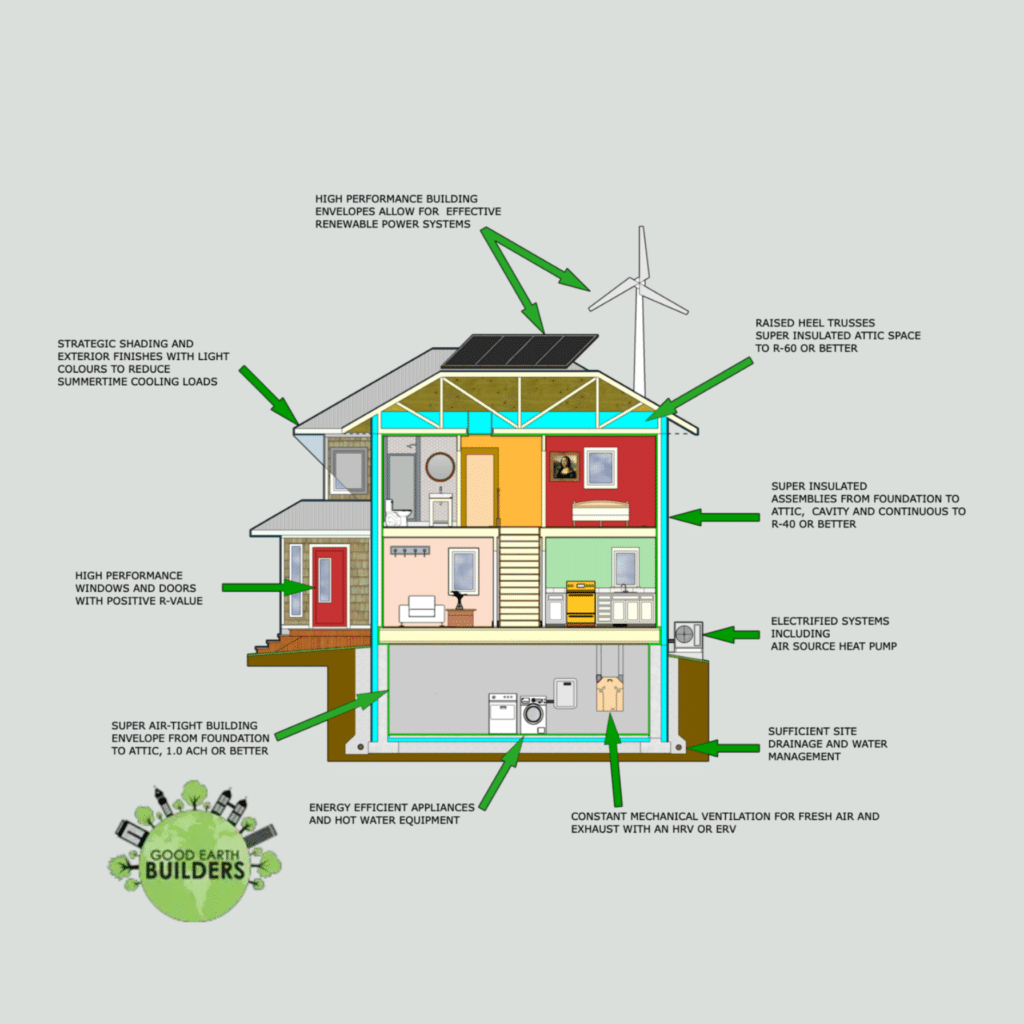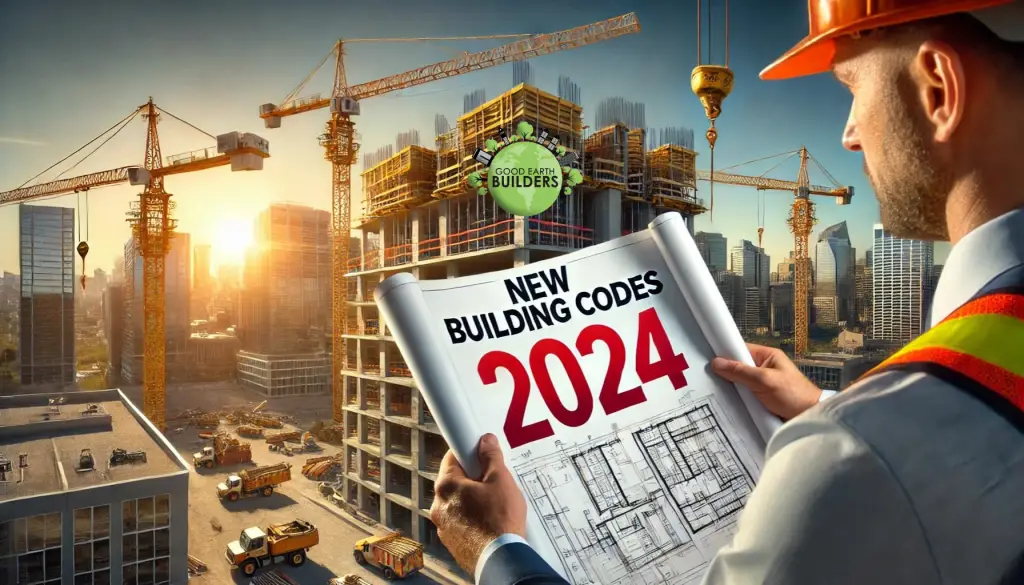Friday, August 15, 2025
Introduction: The Rising Popularity of Net-Zero Living in Calgary
As Calgary moves toward a more sustainable future, net-zero homes are emerging as a compelling option for environmentally conscious homeowners and savvy investors alike. In 2025, with energy prices fluctuating and climate concerns growing, many Calgarians are seriously considering whether these ultra-efficient homes represent a wise financial decision or simply an expensive environmental statement.
This in-depth guide will explore every aspect of net-zero home ownership in Calgary’s unique market and climate. We’ll examine not just the obvious energy savings, but also the less-discussed benefits like improved health, comfort, and long-term property value. Whether you’re a first-time homebuyer, a growing family, or an empty-nester looking to downsize sustainably, this article will provide the detailed information you need to make an informed decision.
Understanding Net-Zero Homes: Beyond the Basics
The Science Behind Net-Zero Performance
Net-zero homes achieve their remarkable efficiency through a combination of cutting-edge technologies and smart design principles. The foundation lies in what energy experts call the “fabric-first” approach:
- Superior Insulation: Typically R-40 walls and R-60 roofs (compared to R-20 and R-40 in conventional homes)
- Airtight Construction: Achieving less than 1.0 air changes per hour (versus 3-5 in standard homes)
- Thermal Bridge Elimination: Special construction techniques prevent heat loss through structural elements
- High-Performance Windows: Triple-glazed units with insulated frames and low-emissivity coatings
Energy Generation Systems in Calgary’s Climate
While the conservation measures reduce energy needs, the “zero” in net-zero comes from renewable energy generation. In Calgary, this primarily means:
Solar Photovoltaic (PV) Systems:
- Typical installation size: 8-12 kW for a 2,000 sq. ft. home
- Annual production: 10,000-15,000 kWh in Calgary’s sunny climate
- Panel types: Monocrystalline silicon (most efficient for our climate)
- Mounting considerations: Optimal 30-45° angle, south-facing preferred
Supplemental Systems:
- Air-source heat pumps (effective to about -25°C)
- Ground-source geothermal (higher upfront cost but more consistent performance)
- Energy recovery ventilators (maintain air quality without heat loss)
The 2025 Cost Landscape: A Detailed Financial Analysis
Upfront Construction Costs Breakdown
Let’s examine the specific cost components that differentiate a net-zero home from a conventional build in Calgary’s 2025 market:
- Envelope Improvements:
- Advanced framing techniques: +$3-$5/sq. ft.
- Premium insulation (spray foam, cellulose, rigid boards): +$2-$4/sq. ft.
- Airtightness measures: +$1-$2/sq. ft.
- High-performance windows/doors: +$8,000-$15,000 for typical home
- Mechanical Systems:
- Air-source heat pump: $12,000-$18,000 installed
- HRV/ERV system: $3,000-$5,000
- Hybrid water heater: $2,000-$3,500
- Renewable Energy Systems:
- Solar PV system: $20,000-$35,000 (before incentives)
- Monitoring/control systems: $2,000-$4,000
- Soft Costs:
- Energy modeling: $1,500-$3,000
- Certification (e.g., Net Zero Ready): $2,000-$5,000
Incentives and Rebates: The 2025 Picture
Calgary homeowners have access to an evolving landscape of financial incentives:
Federal Programs:
- Canada Greener Homes Grant: Up to $5,600
- Canada Greener Homes Loan: Interest-free loans up to $40,000
- Solar Tax Credit: 15% of system cost (up to $3,000)
Provincial Programs:
- Alberta Energy Efficiency Program: Various rebates
- Municipal solar incentives (varies by community)
Utility Programs:
- ENMAX and other providers often offer additional rebates
The Long-Term Financial Equation
To truly understand the value proposition, we need to examine the complete financial picture over time:
Assumptions for a 2,000 sq. ft. Net-Zero Home in Calgary:
- Additional upfront cost: $80,000
- Annual energy savings: $2,800 (conservative estimate)
- Maintenance savings: $300/year (more durable systems)
- Resale premium: 8% based on recent comparables
- Energy price inflation: 3.5% annually
25-Year Projection:
- Cumulative energy savings: ~$120,000
- Resale value premium: ~$60,000 (on $750,000 home)
- Total benefit: ~$180,000
- Net gain: ~$100,000 over conventional home
Living in a Net-Zero Home: The Day-to-Day Experience
Comfort Factors That Surprise Owners
Beyond the energy savings, net-zero homeowners consistently report unexpected quality-of-life improvements:
- Temperature Consistency:
- No more cold spots or drafts
- Stable humidity levels (35-45% year-round)
- Even heat distribution without stratification
- Air Quality Benefits:
- 50-75% reduction in airborne particulates
- Lower VOC levels
- Reduced allergens and asthma triggers
- Acoustic Advantages:
- 60-70% reduction in exterior noise penetration
- Quieter mechanical systems
- Improved room-to-room sound isolation
Maintenance Considerations
While net-zero homes require less frequent maintenance in some areas, they do have unique requirements:
Simplified Maintenance:
- No furnace filters to change (heat pumps use different systems)
- Fewer moving parts in mechanical systems
- Durable building materials last longer
Specialized Maintenance:
- Solar panel cleaning (2-3 times/year)
- HRV/ERV filter changes (every 3-6 months)
- Airtightness testing (every 5 years)
The Calgary Climate Factor: How Our Weather Affects Performance
Winter Performance Realities
Calgary’s cold winters present unique challenges that net-zero homes are specifically designed to address:
- Solar Production in Winter:
- December averages 100-120 kWh/kW (vs. 160-180 in summer)
- Snow reflection can boost production by 10-15%
- Panel tilt optimization helps with snow shedding
- Heating System Performance:
- Cold-climate heat pumps maintain COP >1.5 down to -25°C
- Backup systems (electric resistance or gas) rarely needed
- Thermal mass helps stabilize temperatures during cold snaps
Summer Advantages
Our sunny summers provide excellent conditions for net-zero performance:
- Solar systems often produce surplus energy (exported to grid)
- Superior insulation keeps homes cool without AC
- Natural ventilation strategies work effectively
The Resale Market: Net-Zero Homes in Calgary’s Housing Landscape
Current Market Position
As of 2025, net-zero homes occupy a unique niche in Calgary’s real estate market:
- Represent about 3-5% of new construction
- Command 5-10% price premium over comparable homes
- Spend 15-20% less time on market
- Appeal particularly to:
- Young families (health benefits)
- Retirees (energy cost predictability)
- Eco-conscious buyers
Appraisal and Financing Considerations
The financial industry is gradually adapting to net-zero properties:
- Some lenders offer preferential rates for certified homes
- Appraisers are developing methods to properly value efficiency features
- Insurance providers may offer discounts for resilient features
Making the Decision: Is Net-Zero Right for You?
Ideal Candidates for Net-Zero Living
You’re likely a good fit if you:
- Plan to own the home for 10+ years
- Value environmental sustainability
- Appreciate superior comfort and air quality
- Want protection against energy price volatility
- Are building new or doing a major renovation
When Conventional Might Be Better
Consider traditional construction if:
- You move frequently (under 5 years)
- Budget constraints prevent proper execution
- You’re averse to technology/maintenance
- Your lot has significant solar obstacles
The Future of Net-Zero in Calgary
Coming Developments
The net-zero landscape is evolving rapidly:
- Building Code Changes:
- Alberta’s code moving toward net-zero-ready standards
- Future potential carbon pricing on buildings
- Technology Advancements:
- More efficient cold-climate heat pumps
- Improved battery storage options
- Smart grid integration
- Market Trends:
- Growing consumer demand for sustainable homes
- Increasing builder expertise in net-zero construction
- More financing options becoming available
Conclusion: Weighing the Pros and Cons for Your Situation
After examining all these factors, the question remains: Are net-zero homes worth it in Calgary in 2025? The answer depends on your priorities and circumstances.
For homeowners who:
- Plan to stay long-term
- Value comfort and sustainability
- Can access incentives
- Work with experienced builders
…the investment often makes excellent financial and lifestyle sense. The combination of energy savings, increased comfort, and future-proofing against rising energy costs creates a compelling value proposition.
However, for those with short-term ownership plans or extremely limited budgets, a conventional home with some energy-efficient features might be more practical.
If you’re considering a net-zero home in Calgary, the most important step is working with a builder who truly understands the technology and can guide you through the process. GEB (General Enterprise Builders) has been at the forefront of energy-efficient construction in Calgary for over a decade, helping homeowners navigate the transition to net-zero living with confidence.
Our team can provide personalized advice based on your specific needs and goals
📞 Contact Us today to start the conversation about your future home.




